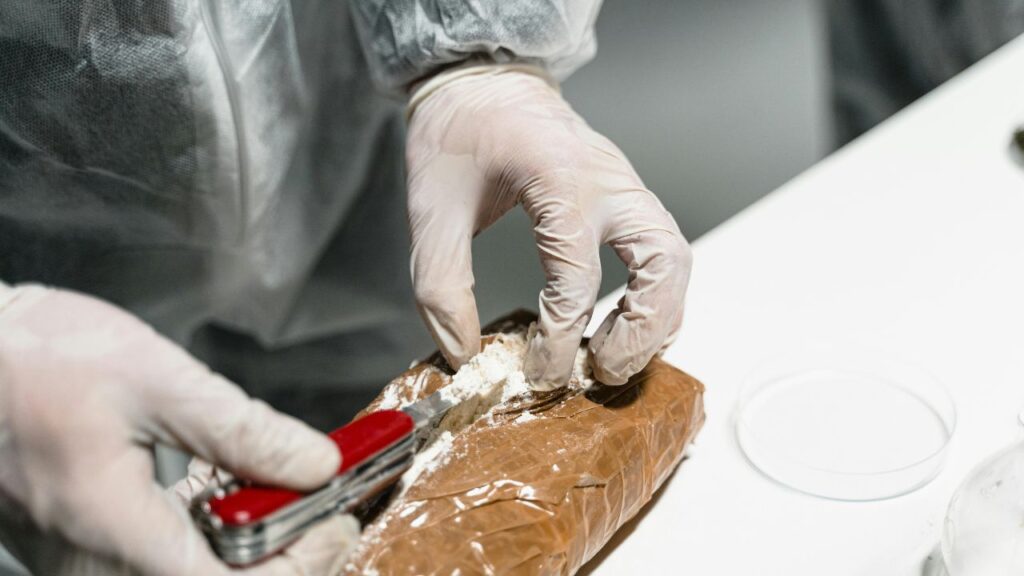Cocaine is a highly addictive illegal stimulant drug that can have devastating effects on a person’s health and well-being. One of the most serious risks associated with cocaine use is overdose, which can lead to life-threatening complications and even death. Knowing how to recognize the signs and symptoms of a cocaine overdose and how to respond can make the difference between life and death. At The Bluffs Addiction Campuses, with locations throughout Ohio, we provide comprehensive addiction treatment programs to help patients overcome cocaine abuse and prevent dangerous overdoses.
What Causes a Cocaine Overdose?
A cocaine overdose occurs when a person uses an amount of the drug that overwhelms their body’s ability to process and eliminate it safely. This can happen with a single high dose or from chronic use over time. Factors that increase the risk of overdose include:
- High purity or potency of the cocaine
- Combining cocaine with other substances like alcohol or opioids
- Underlying health conditions like heart or lung disease
- Injecting cocaine rather than snorting or smoking it
- Resumed use after a period of abstinence, due to lowered tolerance
Signs and Symptoms of Cocaine Overdose
Cocaine is a central nervous system stimulant that increases alertness, energy and euphoria by flooding the brain with dopamine. In an overdose, these effects are amplified to dangerous levels, causing a range of physical and psychological symptoms:
- Extreme agitation, restlessness and anxiety
- Rapid or irregular heartbeat and chest pain
- Dangerously high blood pressure and body temperature
- Excessive sweating and tremors
- Nausea, vomiting and abdominal pain
- Confusion, paranoia and hallucinations
- Violent or erratic behavior
- Seizures or convulsions
- Loss of consciousness or unresponsiveness
If you notice these signs in someone who has used cocaine, it’s critical to get emergency medical help right away. Call 911 and report a suspected overdose. While waiting for paramedics, take these steps if you can do so safely:
- Keep the person calm and reassure them that help is coming.
- If they are conscious, try to keep them awake and breathing.
- If they are unconscious, check for signs of breathing and a pulse. Roll them onto their side in case of vomiting.
- If they are not breathing, perform rescue breathing or CPR if you are trained. The 911 dispatcher can guide you.
- If you suspect an opioid may also be involved and you have access to naloxone (Narcan), administer it according to instructions to help reverse an overdose.
- Gather any information that may help emergency responders, such as what drugs were taken, how much, and when.
Every moment counts in a cocaine overdose. Immediate treatment can prevent brain damage, organ failure and death. Emergency responders will evaluate the person’s condition, secure their airway and breathing, and administer medications and fluids to stabilize heart rate and blood pressure. Depending on the severity of the overdose, the person may need to be admitted to the hospital for further care and monitoring.
Long-Term Health Risks
Beyond the acute danger of overdose, chronic cocaine abuse takes a heavy toll on a person’s physical and mental health over time. Potential long-term effects include:
- Damage to the heart muscle and blood vessels, increasing risk of heart attack and stroke
- Lung damage and respiratory problems, especially from smoking crack cocaine
- Damage to nasal tissues and structures from snorting cocaine
- Kidney damage and failure
- Sexual dysfunction and reproductive issues
- Severe malnutrition and weight loss
- Cognitive deficits, memory loss and attention problems
- Persistent anxiety, depression, paranoia and aggression
- Increased risk of contracting infectious diseases like HIV, hepatitis C and tuberculosis from sharing drug paraphernalia
- Breakdown of work, family and social relationships
The longer and more heavily a person uses cocaine, the harder it becomes to quit without professional help. Cocaine addiction rewires brain pathways involved in reward, stress, decision-making and self-control, leading to compulsive drug-seeking despite negative consequences. Quitting cocaine abruptly after prolonged use can trigger intense cravings and debilitating withdrawal symptoms like depression, fatigue, sleep disturbances and strong cravings. Many people need the structure and support of a professional treatment program to get through cocaine withdrawal safely and maintain long-term abstinence.
Cocaine Addiction Treatment at The Bluffs
At The Bluffs Addiction Campuses, we understand the challenges of overcoming cocaine addiction. Our experienced team is dedicated to providing the individualized care and support our patients need to succeed in recovery. Our comprehensive cocaine addiction treatment programs include:
- Thorough assessment to identify co-occurring mental health disorders and develop a personalized recovery plan
- Medically-supervised detox to clear cocaine from the body safely and comfortably
- Evidence-based therapies like cognitive-behavioral therapy, dialectical behavior therapy and motivational interviewing
- Individual and group counseling to address underlying issues, build recovery skills and prevent relapse
- Medication-assisted treatment options to ease withdrawal symptoms and reduce cravings
- Family therapy to repair relationships damaged by addiction and foster communication and support
- Holistic approaches like exercise, nutrition, music and art therapy
- Aftercare planning and alumni support to strengthen recovery as patients transition back to independent living
If you or someone you love is struggling with cocaine addiction, don’t wait to reach out for help. The caring professionals at The Bluffs Addiction Campuses are here to listen, provide information, and help you take the first steps toward a healthier, drug-free future. Call us today at 330-919-9228 to learn more about our programs and start your recovery journey.








